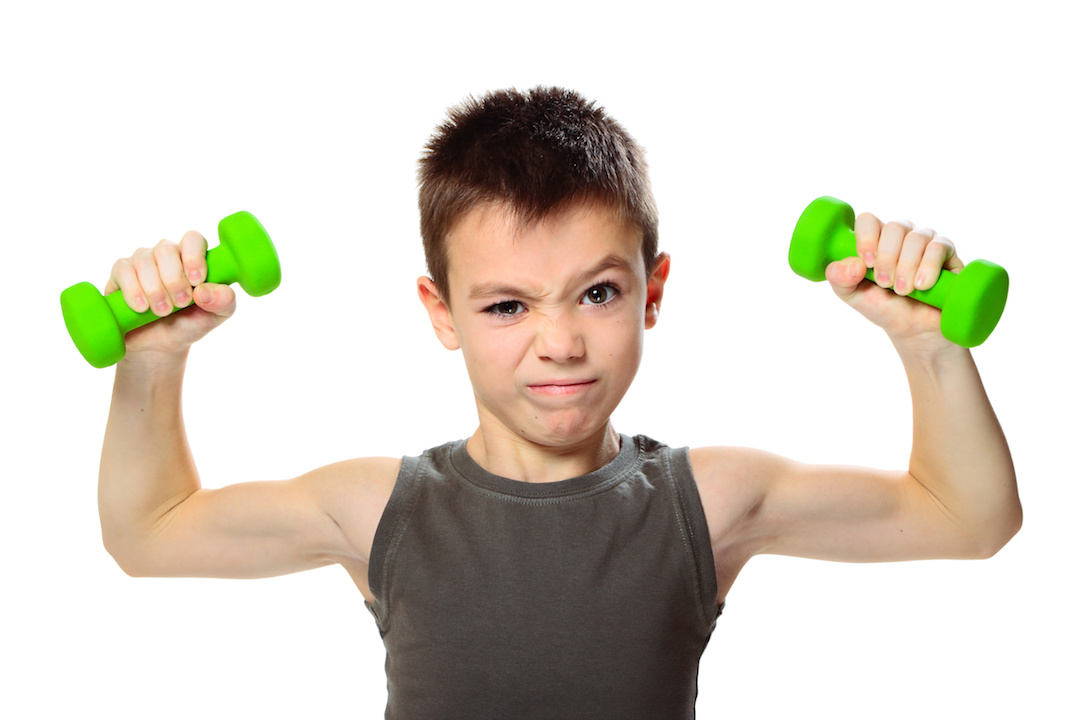
During the last few years, the Delos team has been invited to participate in a “Family Health and Fitness Day” at a local elementary school. While we enjoy teaching kids about muscle health and the Delos technique, a surprising outcome of doing Delos Therapy on very young people is the learning that takes place for our newest therapists.
At Delos, we know from decades of clinical experience that hyper-contracted muscle fibers are the root cause of most cases of chronic pain. In our daily lives, when we work or when we train in the gym, the repetitive motions or sustained contractions we experience cause muscle fibers to relax and contract. Over time – sometimes years and decades – contractions become shorter and shorter, ultimately resulting in hyper-contracted fibers that are no longer capable of flexing and relaxing. When this happens, symptoms of stiffness and pain begin to emerge due to limited mobility or pressure and forces pulling on joints and clamping down on vessels and nerves.
Debunking the “hard muscle” myth
One physical characteristic we encounter consistently when working on clients is that the muscles surrounding areas that are experiencing pain or stiffness feel especially hard to the touch. Many people who see us for the first time don’t find this hardness problematic until we address the topic of true muscle health. We’ve come to the conclusion that most people believe that muscles should feel hard. In fact, most people go to the gym to get the “hard” body look. There are even gym classes called “Buns of Steel” that suggest gluts should be hard like metal.
We are here to assert something different – a fundamental characteristic of healthy muscle tissue is its softness when it is in a relaxed state. We’ll say that again – healthy muscles should feel soft to the touch. The only time “buns” should feel like steel is when they are flexed. In fact, we have had the opportunity to palpate the muscles of extremely muscular bodybuilders and what we have found is that their muscles are extremely soft to the touch. The hardness is apparent only when they flex. The reason the muscles look hard is because the area around the muscle is very lean, containing little body fat and water, and the skin is taut around the muscle, giving it a hard appearance. In reality, their muscles are soft when in a relaxed state.
Soft muscles are pain-free muscles
So what have we learned or validated from doing therapy on children? First, when we palpate children’s muscles, they are almost always soft to the touch. Children don’t tend to have a lot of pain because their bodies haven’t been put through years of repetitive motions and sustained contractions to cause hyper-contraction and tightness. At their young age, their muscles still exhibit optimal health. Second, since their muscles are healthy and soft, children don’t feel pain during Delos Therapy. Some of our clients will say that getting therapy can be painful and they describe it as a “hurts so good” sensation. In reality, applying pressure on healthy muscles should not be painful. Only when fibers are tightly bound, preventing circulation, compressing nerves and pulling on joints, do we notice that there is sensitivity to pressure.
Our therapy is designed to undo muscle tightness using a complex, systematic approach. We understand that loose, soft muscle fibers lead to superior performance in the gym and in life. Essentially, our goal is to restructure unhealthy muscle tissue and restore it to the state it was in when it was most healthy – in our youth.
- Water, IV Hydration And The Implications For Tight Muscles - July 15, 2019
- The Collagen Craze: How Collagen Peptides Differ From The Collagen Causing Your Muscle Pain - June 28, 2019
- Anatomy Trains, Collagen and the Delos Perspective - September 20, 2018


